Eureka is Netflix's open source service registration and discovery component.
Common Service Registration and Discovery Components
Zookeeper,Eureka
Eureka Service Registration and Discovery Principles
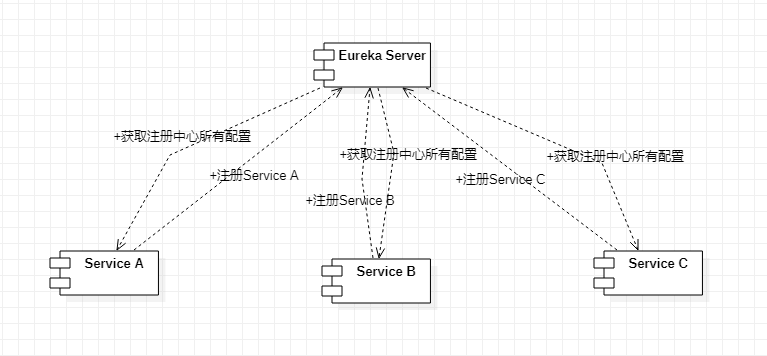
- Services are registered with the registry
- Get additional registry service configurations
Create Eureka Server
Create a project using Spring Initializr
Create a project
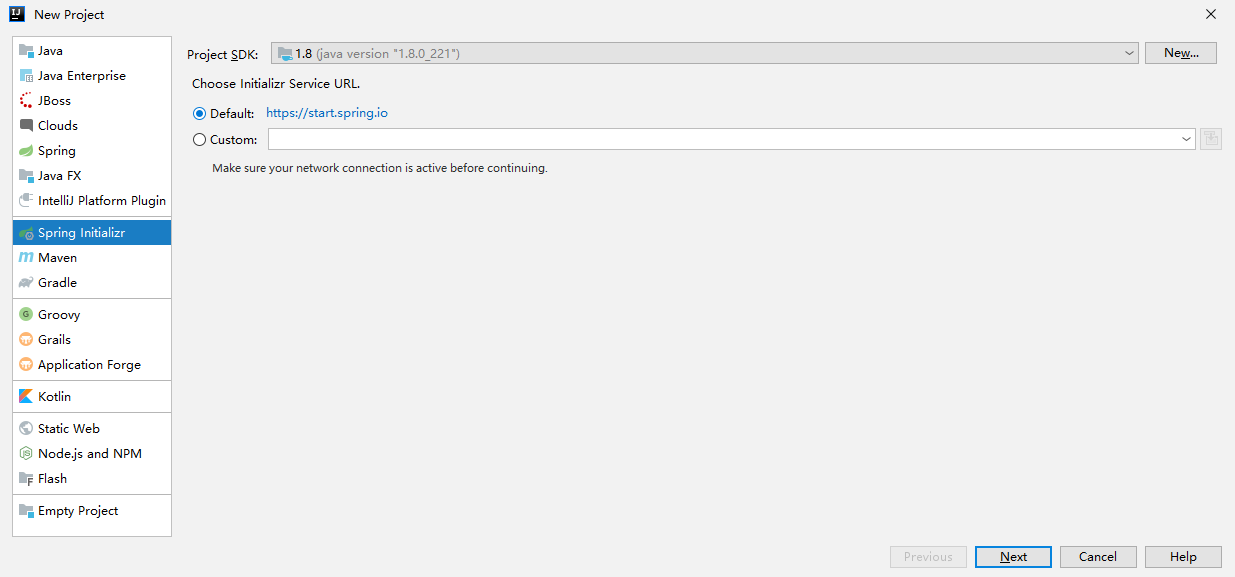
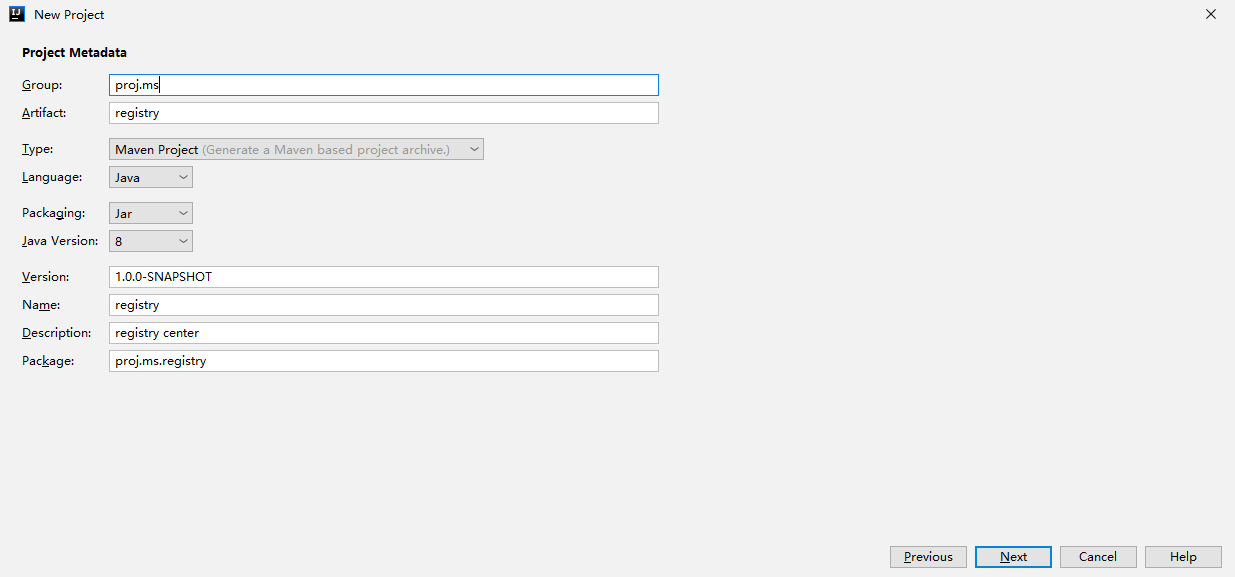
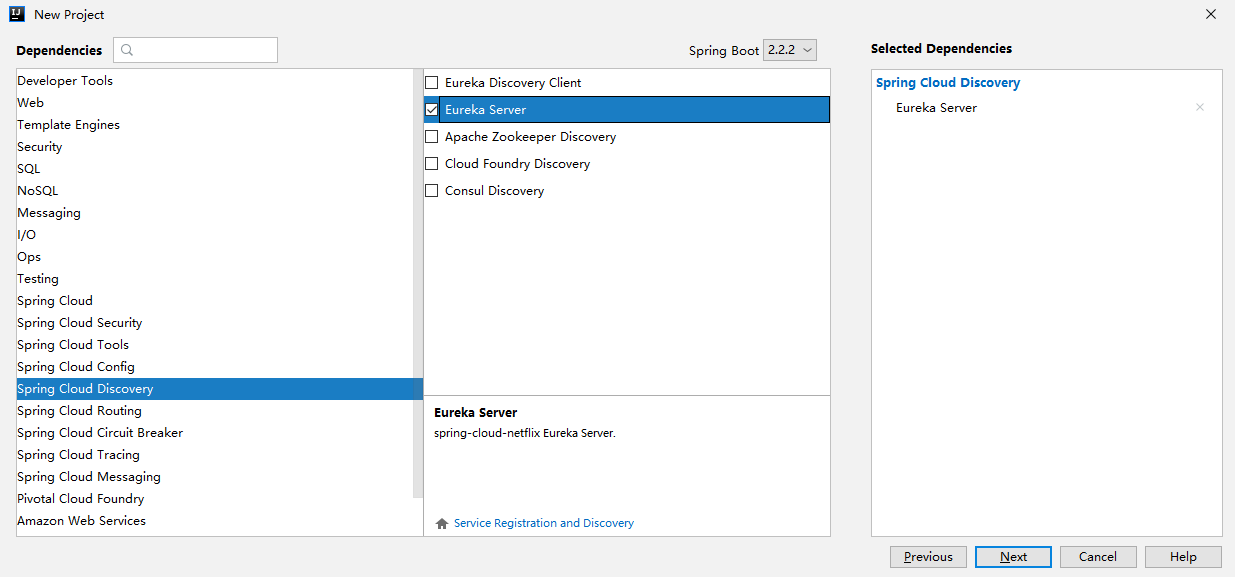
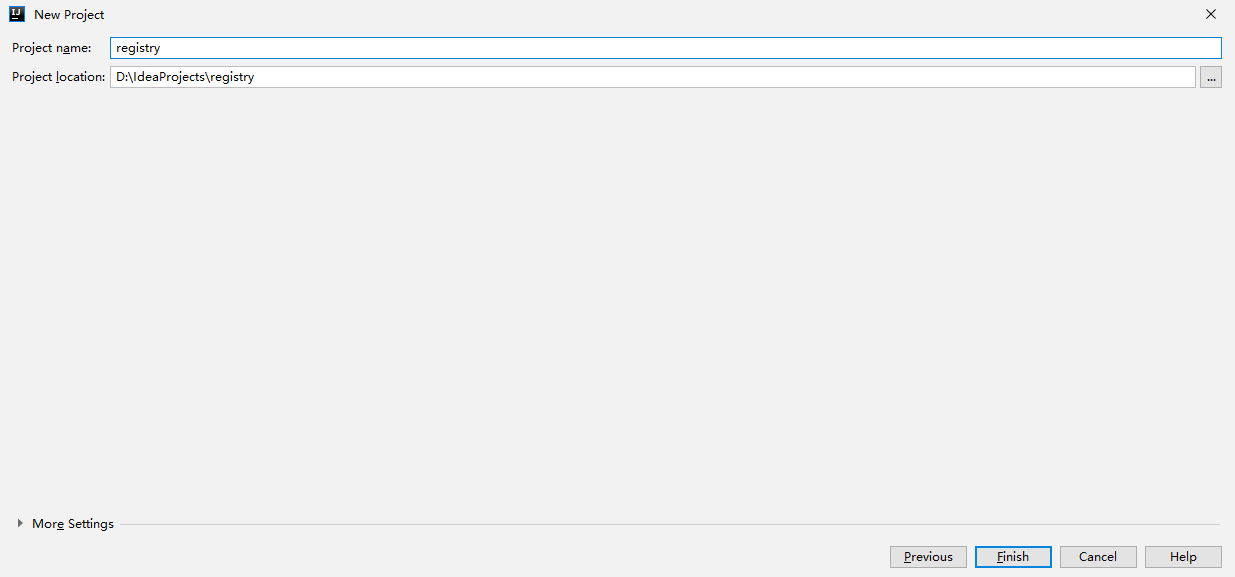
Check Dependencies
After creating the project, check the version number in the generated pom
<?xml version="1.0" encoding="UTF-8"?><project xmlns="http://maven.apache.org/POM/4.0.0" xmlns:xsi="http://www.w3.org/2001/XMLSchema-instance" xsi:schemaLocation="http://maven.apache.org/POM/4.0.0 https://maven.apache.org/xsd/maven-4.0.0.xsd"> <modelVersion>4.0.0</modelVersion> <parent> <groupId>org.springframework.boot</groupId> <artifactId>spring-boot-starter-parent</artifactId> <version>2.2.2.RELEASE</version> <relativePath/> <!-- lookup parent from repository --> </parent> <groupId>proj.ms</groupId> <artifactId>registry</artifactId> <version>1.0.0-SNAPSHOT</version> <name>registry</name> <description>registry center</description> <properties> <java.version>1.8</java.version> <spring-cloud.version>Hoxton.RELEASE</spring-cloud.version> </properties> <dependencies> <dependency> <groupId>org.springframework.cloud</groupId> <artifactId>spring-cloud-starter-netflix-eureka-server</artifactId> </dependency> <dependency> <groupId>org.springframework.boot</groupId> <artifactId>spring-boot-starter-test</artifactId> <scope>test</scope> <exclusions> <exclusion> <groupId>org.junit.vintage</groupId> <artifactId>junit-vintage-engine</artifactId> </exclusion> </exclusions> </dependency> </dependencies> <dependencyManagement> <dependencies> <dependency> <groupId>org.springframework.cloud</groupId> <artifactId>spring-cloud-dependencies</artifactId> <version>${spring-cloud.version}</version> <type>pom</type> <scope>import</scope> </dependency> </dependencies> </dependencyManagement> <build> <plugins> <plugin> <groupId>org.springframework.boot</groupId> <artifactId>spring-boot-maven-plugin</artifactId> </plugin> </plugins> </build> </project>
adding annotations
Add the @EnableEureka Server annotation on the RegistryApplication class to enable the default configuration of Eureka
package proj.ms.registry; import org.springframework.boot.SpringApplication; import org.springframework.boot.autoconfigure.SpringBootApplication; import org.springframework.cloud.netflix.eureka.server.EnableEurekaServer; @EnableEurekaServer @SpringBootApplication public class RegistryApplication { public static void main(String[] args) { SpringApplication.run(RegistryApplication.class, args); } }
Add Configuration
Modify the application.yml file to add the following:
server: port: 8761 eureka: instance: hostname: localhost client: register-with-eureka: false fetch-registry: false service-url: defaultZone: http://${eureka.instance.hostname}:${server.port}/eureka/ spring: application: name: eureka
Start Eureka Server
Click the Launch button in the upper right corner of the development tool to launch Eureka Server.Visit http://localhost:8761/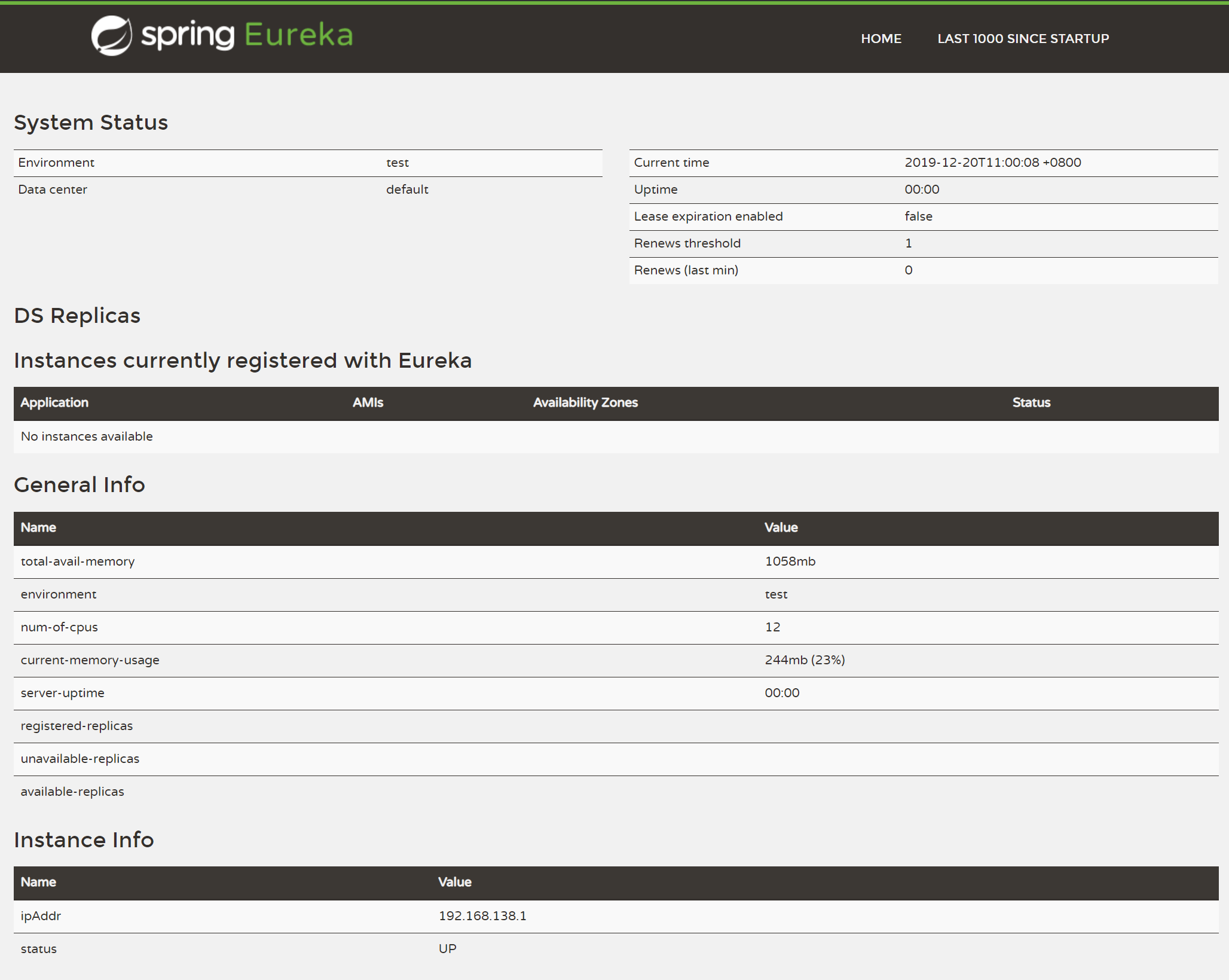
Eureka Cluster
Eureka Cluster Deployment Architecture
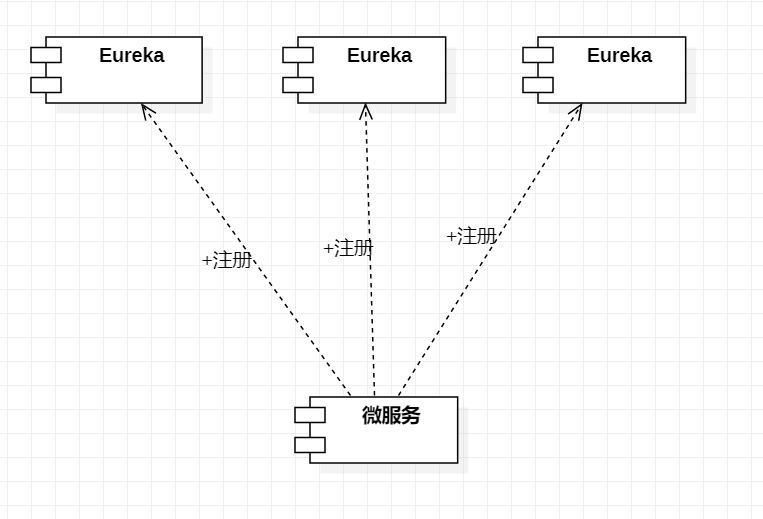
When a microservice is registered, it is registered to multiple Eureka at the same time, even if one of the nodes is unavailable, it will not cause the service registration to fail.
Eureka Cluster Synchronization Principle
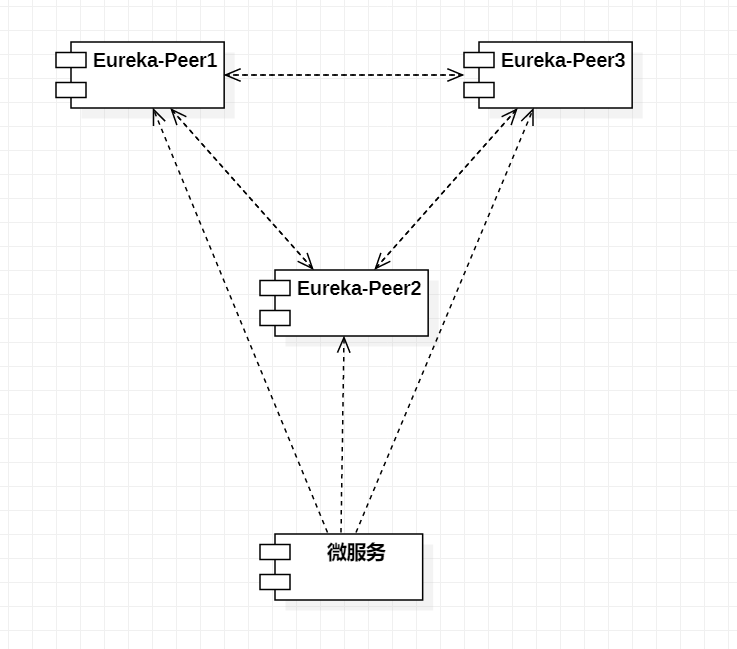
Eureka nodes automatically synchronize their data to ensure high availability of the cluster.
Eureka Cluster Configuration
Modify host file
Add the following to the host file:
127.0.0.1 peer1 127.0.0.1 peer2 127.0.0.1 peer3
application.yml
--- spring: profiles: peer1 application: name: eureka server: port: 8761 eureka: instance: hostname: peer1 client: service-url: defaultZone: http://peer2:8762/eureka/,http://peer3:8763/eureka/ --- spring: profiles: peer2 application: name: eureka server: port: 8762 eureka: instance: hostname: peer2 client: service-url: defaultZone: http://peer1:8761/eureka/,http://peer3:8763/eureka/ --- spring: profiles: peer3 application: name: eureka server: port: 8763 eureka: instance: hostname: peer3 client: service-url: defaultZone: http://peer1:8761/eureka/,http://peer2:8762/eureka/
Eureka cluster startup
In Idea, multiple applications are configured simultaneously to activate different profiles through startup parameters.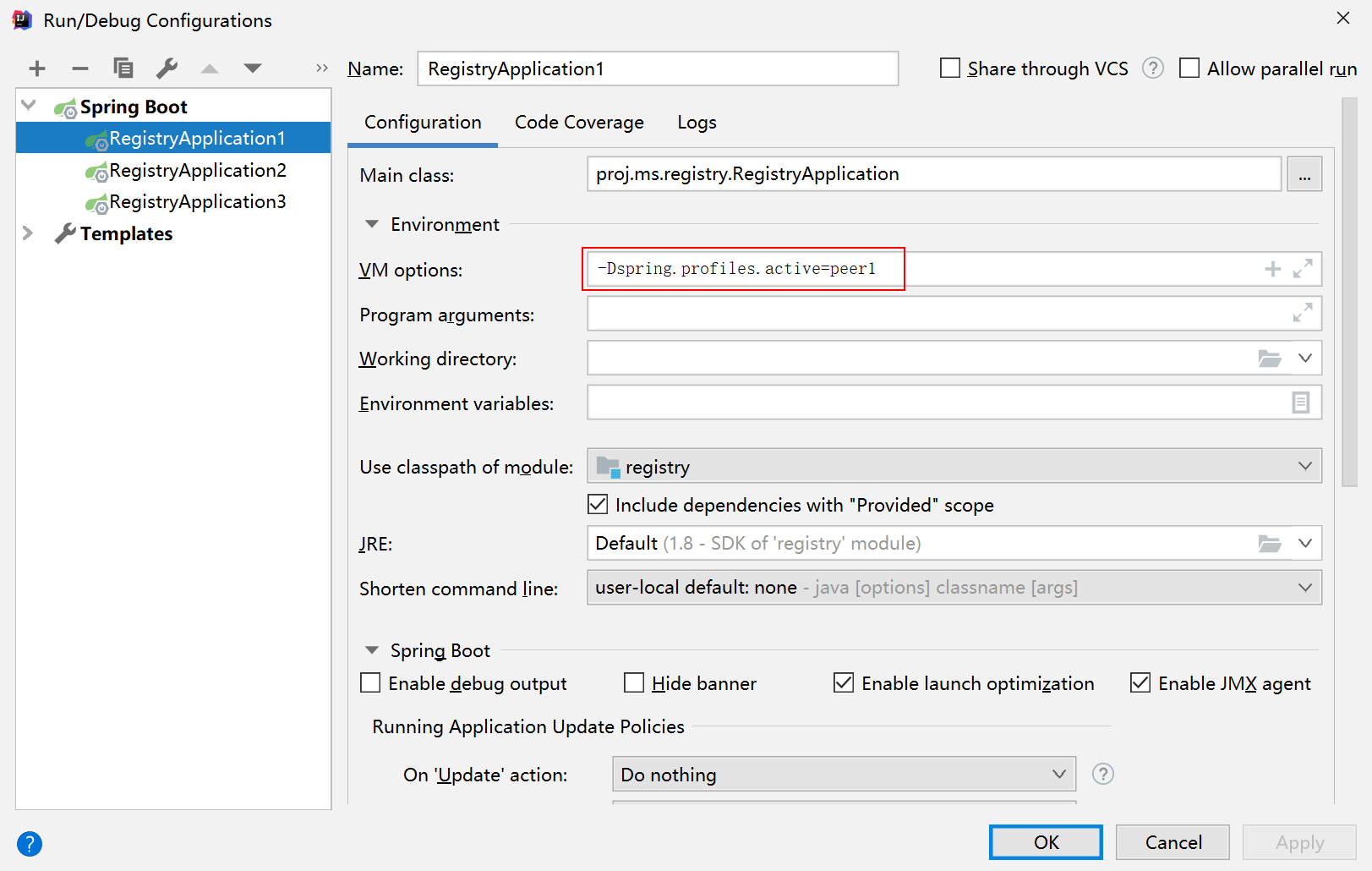
Similarly, configure three applications, corresponding to different profile s.
Eureka cluster validation
Access in Browser http://peer1:8761/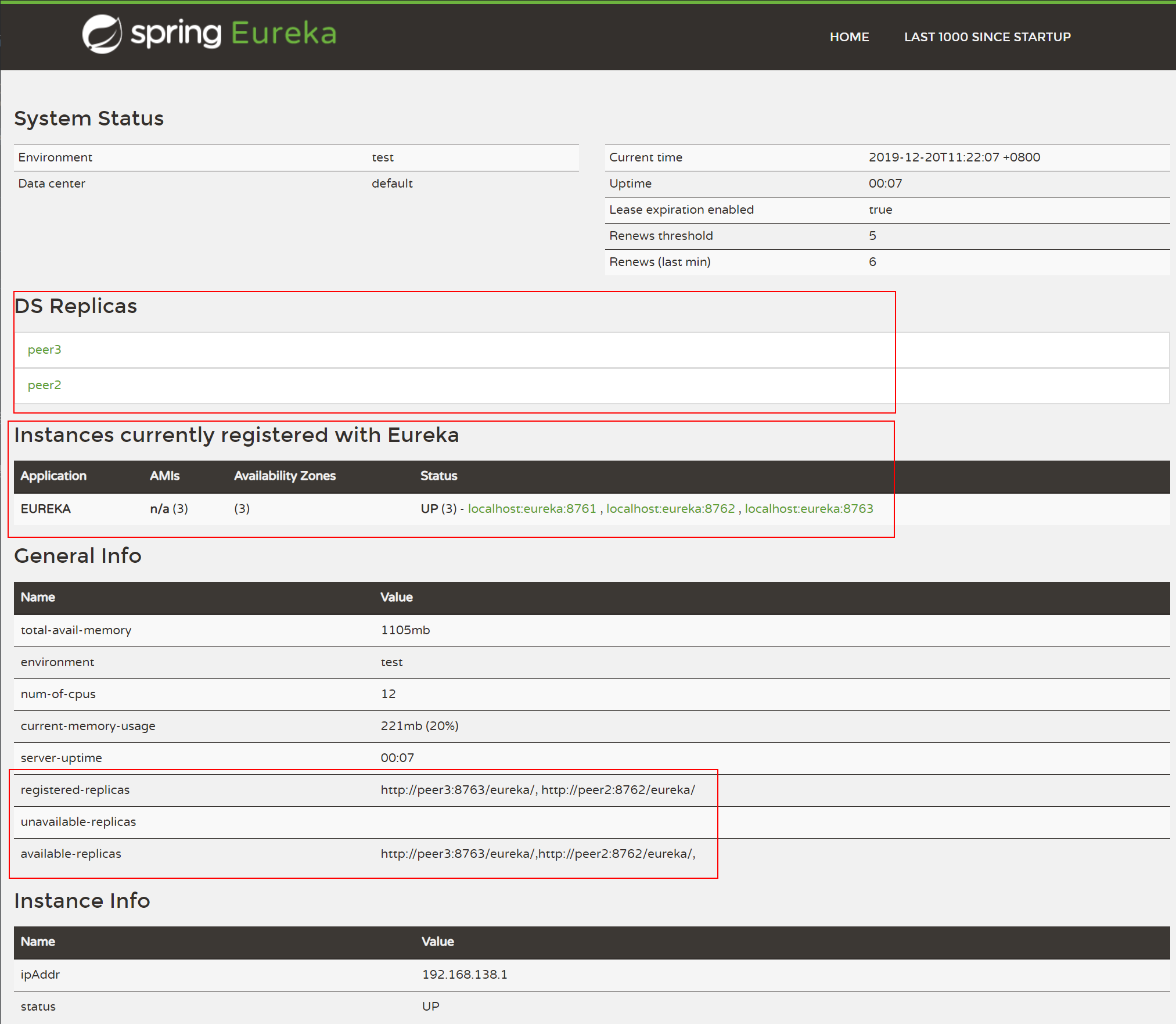
Visit http://peer2:8762/,http://peer3:8763/ You will find that the three Eureka nodes have finished registering with each other.
Package Deployment
Pack
Package with the maven command:
mvn clean package -Dmaven.test.skip=true
After packaging, two files, registry-1.0.0-SNAPSHOT.jar and registry-1.0.0-SNAPSHOT.jar.original, will be generated in the project target directory.Where registry-1.0.0-SNAPSHOT.jar contains all the dependent jar packages for the project.
Function
Start Eureka with the following command:
java -jar -Dspring.profiles.active=peer1 registry-1.0.0-SNAPSHOT.jar proj.ms.registry.RegistryApplication
Similarly, start all nodes in the cluster by specifying different configuration files.
java -jar -Dspring.profiles.active=peer1 registry-1.0.0-SNAPSHOT.jar proj.ms.registry.RegistryApplication java -jar -Dspring.profiles.active=peer2 registry-1.0.0-SNAPSHOT.jar proj.ms.registry.RegistryApplication java -jar -Dspring.profiles.active=peer2 registry-1.0.0-SNAPSHOT.jar proj.ms.registry.RegistryApplication
Service Producer and Consumer Testing
Question Summary
ConnectException in cluster environment startup log
com.sun.jersey.api.client.ClientHandlerException: java.net.ConnectException: Connection refused: connect
Reason for the problem: Due to the different starting order of different nodes in the cluster, the registered Eureka Service has not finished starting when registering with each other during the start-up process.If peer1 starts before peer2 has finished, the above exception will occur when peer1 registers itself with peer2.
Solution: This exception log is a normal phenomenon in the cluster. After all nodes in the cluster have finished starting up, they will successfully complete registration with each other. The above exception will not appear in the log.
In a clustered environment, nodes are in the unavailable-replicas list
Reason for problem: Eureka registers with host name by default
Solution: Host name specified in eureka.instance.hostname, and the correct host can be found by modifying the host file or DNS.